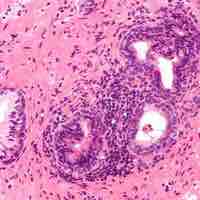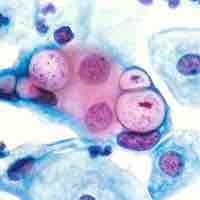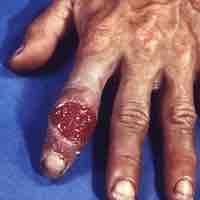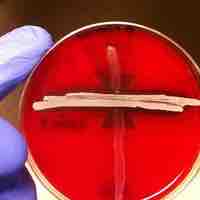Section 23
Bacterial Diseases of the Reproductive System
By Boundless

Prostatitis is an inflammation of the prostate which can be caused by bacteria.

Prostatitis is an inflammation of the prostate which can be caused by bacteria.

Gonorrhea (also colloquially known as the clap) is a common human sexually transmitted infection caused by the bacterium Neisseria gonorrhoeae.

Nongonococcal urethritis (NGU) is an urethral inflammation that is not caused by Neisseria gonorrhoeae.

Pelvic inflammatory disease (PID) is an inflammation of the female reproductive organs that is most often caused by infection.

Syphilis is a sexually transmitted infection (STI) caused by the bacterium Treponema pallidum.

Genital ulcers are skin ulcers on the genital area caused by sexually transmitted diseases or noninfectious conditions.

Lymphogranuloma venereum (LGV) is a sexually transmitted disease which causes an infection of the lymph nodes.

Group B streptococcus is part of the natural microflora in some people, but can sometimes cause life-threatening infections.

Chancroid is a sexually transmitted disease caused by Haemophilus ducreyi.
Bacterial vaginosis (BV) is a condition of disrupted balance of the vaginal microflora.

Chlamydia infection is a common sexually transmitted infection (STI) in humans caused by the bacterium Chlamydia trachomatis.